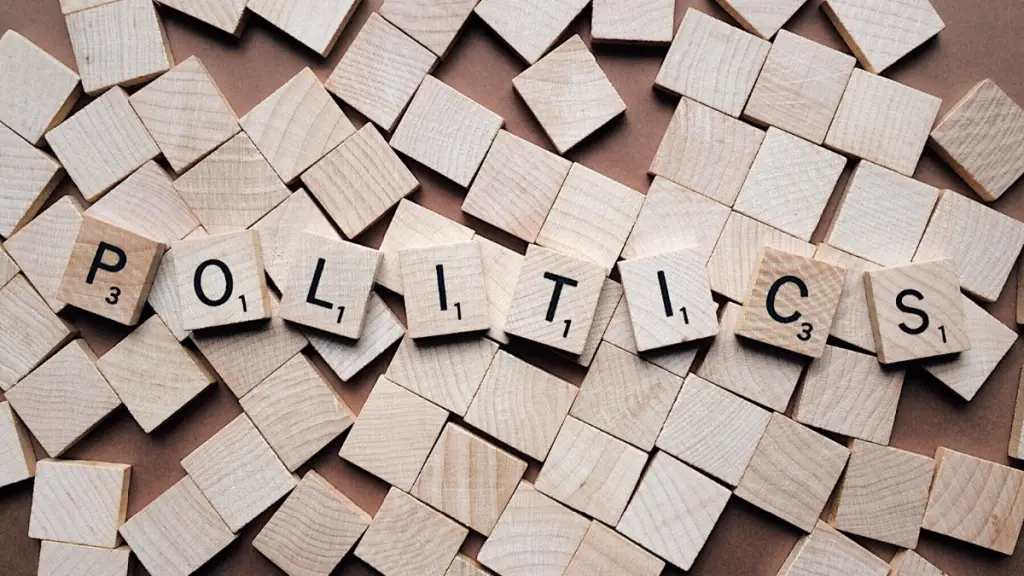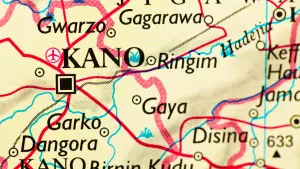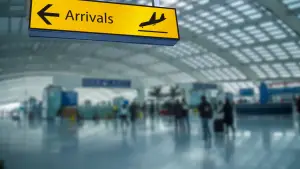On May 3, 2025, the usually quiet streets of Katsina State were filled with excitement and celebration. President Bola Ahmed Tinubu had arrived on a two-day working visit, greeted with a ceremony and cultural display.
One of the highlights was the performance by Dauda Kahutu Rarara, a well-known Hausa praise-singer. What made the moment particularly memorable was Rarara’s choice of song—a rendition of the Yoruba-language hit “Omo Ologo,” performed in honor of Tinubu.
The event was widely covered on television and circulated on social media, showing President Tinubu and Katsina State Governor Dikko Umar Radda clapping enthusiastically along.
While some interpreted the moment as a powerful gesture of national unity, others viewed it as a tone-deaf display in a region burdened by chronic poverty, insecurity, and social neglect.
This single performance revealed the deep tensions between artistic expression, political allegiance, and the responsibility to speak truth to power.
The event confirmed a fundamental dilemma faced by artists in Northern Nigeria. This is on how to balance personal ambition, cultural tradition, and democratic accountability in a region where survival and influence often depend on loyalty to those in power.
Rarara’s Journey: From Almajiri to Cultural Icon
Dauda Kahutu Rarara’s life story is one of grit and transformation. Born into modest means, he was once an almajiri. A child enrolled in a traditional Islamic school system that often sends young boys into the street, begging to survive.
Like many Northern children, he grew up in hardship, navigating a life with few opportunities and limited social protection. Yet Rarara harnessed his voice and talent to rise through the ranks of local entertainment, eventually becoming a dominant force in Hausa political music.
His breakthrough came during the presidential campaigns of Muhammadu Buhari. With tracks like Masu Gudu Su Gudu—a song that mocked the corrupt and praised Buhari’s anti-corruption platform. Rarara won widespread admiration across the North.
Rarara’s music was not merely catchy; it was symbolic. It reflected the aspirations of millions who hoped for integrity and development under Buhari’s leadership. Rarara quickly became the unofficial bard of Northern political campaigns, a symbol of loyalty and cultural pride.
But with fame came responsibility, and Rarara’s increasing proximity to power began to blur the lines between art and propaganda.

Culture Meets Politics: The Power of Praise-Singing
In Northern Nigeria, praise-singing is more than entertainment. It is found in centuries-old traditions dating back to the Hausa emirate system, where musicians were employed to honor kings and Emirs.
These artists used songs to praise rulers and legitimize their authority. In exchange, they received gifts, protection, and status. This tradition continues in today’s democratic context, but with new complexities.
For example, in 2014, Naziru Ahmed was turbaned Sarkin Wakan Sarkin Kano for his sensational hit song “Mata ku Ɗau Turame” which he sang to celebrate the coronation of Muhammadu Sanusi II as the 14th Emir of Kano.
Rarara’s performance of a Yoruba-language song in a Hausa-speaking state was culturally significant. It attempted to build a symbolic bridge across ethnic divides, aligning with President Tinubu’s “Renewed Hope” agenda.
While others saw Rarara’s choice of singing in Yoruba as a further Yorubization agenda of President Tinubu which many people from the North are accusing him of. In many publications, Nigerians lamented the favoritism President Tinubu has shown to people from Lagos or those with Yoruba names in his appointments.
Notwithstanding, Rarara’s performance aimed to show that Nigeria’s different ethnic groups—often portrayed as divided—could celebrate one another. In this sense, the song carried the potential for unity. However, the context in which it occurred also mattered deeply.
At a time when Katsina State was battling rampant insecurity—where villagers flee their homes due to frequent attacks by armed bandits—many questioned whether such celebratory music was appropriate. Social media reactions were mixed.
Supporters applauded the performance for promoting national cohesion and cementing Rarara’s Brilliance , while critics called it an insult to suffering communities. “We are burying our dead and you are clapping for politicians?” one user posted on X.
The divide in opinion reflected a wider frustration: while elites gather to celebrate, ordinary citizens endure hardship with little attention.
Artistic Freedom or Political Conformity?
This leads to the first prong of the trilemma. Artistic freedom. In theory, artists in Nigeria enjoy the constitutional right to express themselves freely. Yet, in practice, artistic expression is often shaped by political pressures and the desire for patronage.
In Rarara’s case, his praise of Tinubu continued a pattern of aligning with ruling powers. But this raises a critical question: should artists use their platforms to support the powerful or to speak up for the powerless?
Throughout history, musicians have played essential roles in challenging the status quo. Fela Kuti’s songs like Zombie ridiculed military rule and rallied citizens against oppression. More recently, artists such as Falz have used music to criticize police brutality, particularly during the #EndSARS movement. These examples show that music can be a tool for social change, not just for celebration.
In contrast, Rarara has often chosen to use his art to support political figures. While there is nothing illegal about this, it reduces the space for critical reflection. This is particularly worrisome when performed in a region as volatile as the North.
Critics argue that by constantly siding with politicians, Rarara reinforces a culture of unaccountability, where leaders are praised regardless of their performance.
Governance and the Artist’s Role
The second prong of the trilemma is governance. When Tinubu visited Katsina, he emphasized the need for reclaiming ungoverned spaces from bandits and investing in agricultural mechanization.
These are crucial steps for a region that has suffered years of underdevelopment. But instead of focusing national attention on these issues, the media buzz centered around Rarara’s performance.
This shift in focus reflects a dangerous tendency in Nigerian politics: the use of entertainment to distract from governance. While performances like Rarara’s generate excitement, they often overshadow more pressing concerns.
For instance, Katsina is one of several Northern states with high poverty rates, weak infrastructure, and a fragile education system. The almajiri system, despite some reform efforts, continues to leave millions of children vulnerable.
Given his background, Rarara is uniquely positioned to highlight these issues. He has lived them. Yet, by choosing to praise instead of question, he risks missing the opportunity to advocate for the communities he once came from.
Political Alignment and Cultural Expectations
The third and final prong is political alignment. In the North, aligning with political elites often brings access to resources, safety, and visibility. But this alignment also comes with risks. Artists who become too closely linked with the government may lose credibility among the public.
Youths in the North, many of whom are unemployed and disillusioned, are increasingly vocal online. They want their experiences and frustrations reflected in the art they consume.
In a region where traditional structureas still influence cultural norms, there is tension between the old and the new.
While older audiences may see nothing wrong in Rarara’s praise-singing, younger Nigerians expect more from their artists. They want musicians who can both celebrate and critique—who understand the complexities of life in the North and are willing to speak hard truths.
Northern Nigerian Musicians Who Challenge the Status Quo
While praise singing has historically been a prominent feature of Northern Nigerian music, some artists have used their platforms to challenge the status quo, raise awareness of social issues, and critique political systems.
These musicians use their voices to reflect the frustrations and aspirations of the region’s marginalized populations, speaking out against corruption, inequality, and the struggles of everyday life.
Aminu Ala (Alan Waƙa)
Known for his blend of traditional Hausa melodies and modern sounds, Aminu has used his music to subtly critique societal issues, including corruption and the struggles faced by the common people in Northern Nigeria. His ability to blend culturally rich lyrics with pointed commentary on political and social issues makes him a unique figure in the region’s music scene.
Barmani Choge
A trailblazer in the 1980s and 1990s, Barmani Choge’s music was not just a reflection of Hausa traditions but also a critique of gender inequality and the systemic oppression of women in Northern Nigeria. By questioning traditional norms, she opened the door for greater inclusion of women in the public discourse, challenging conservative societal views.
Morell
Morell, a Hausa rapper and singer, speaks directly to the challenges faced by Northern youth, including unemployment, poverty, and social disillusionment. His lyrics often reflect the anger and frustrations of a generation caught between traditional values and modern struggles, making him a key figure in representing the youth’s voice in the political and social landscape.
Reimagining the Artist’s Role in Democracy
As Nigeria’s democracy matures, the role of artists must evolve alongside it. Rarara’s story is remarkable, but it also represents a broader opportunity. Artists in Northern Nigeria must ask themselves: What kind of impact do we want to have? Do we want to comfort the powerful or challenge them? Can we entertain while also informing and inspiring?
To truly harness the power of music, collaboration is essential. Civil society organizations, media houses, and musicians can work together to promote socially conscious content.
Programs that promote advocacy on Art, like Poetic Wednesdays Initiative, should be supported . Community radio stations can host artist-led discussions on issues such as insecurity, education, and corruption.
Public campaigns led by musicians could raise awareness about neglected issues like the almajiri crisis or rural displacement.
Musicians could even join advocacy coalitions pushing for legislative reforms, thereby using their celebrity status to amplify grassroots voices.
In festivals like the Kano International Poetry Festival, artists could perform songs that both honor tradition and highlight current challenges—showing that cultural celebration and civic engagement are not mutually exclusive.
Conclusion
Rarara’s Omo Ologo performance was more than just entertainment. It was a reflection of the contradictions within Nigerian democracy—where freedom exists but is often shaped by loyalty; where culture is rich but sometimes silences critique; and where artists have influence but must choose how to wield it.
Northern Nigeria needs more than praises sung at ribbon-cuttings. It needs songs that tell the truth, that honor the people, and that challenge the powerful to do better. The region’s challenges are too deep, and its potential too great, for its musicians to merely echo political slogans.






